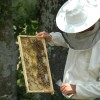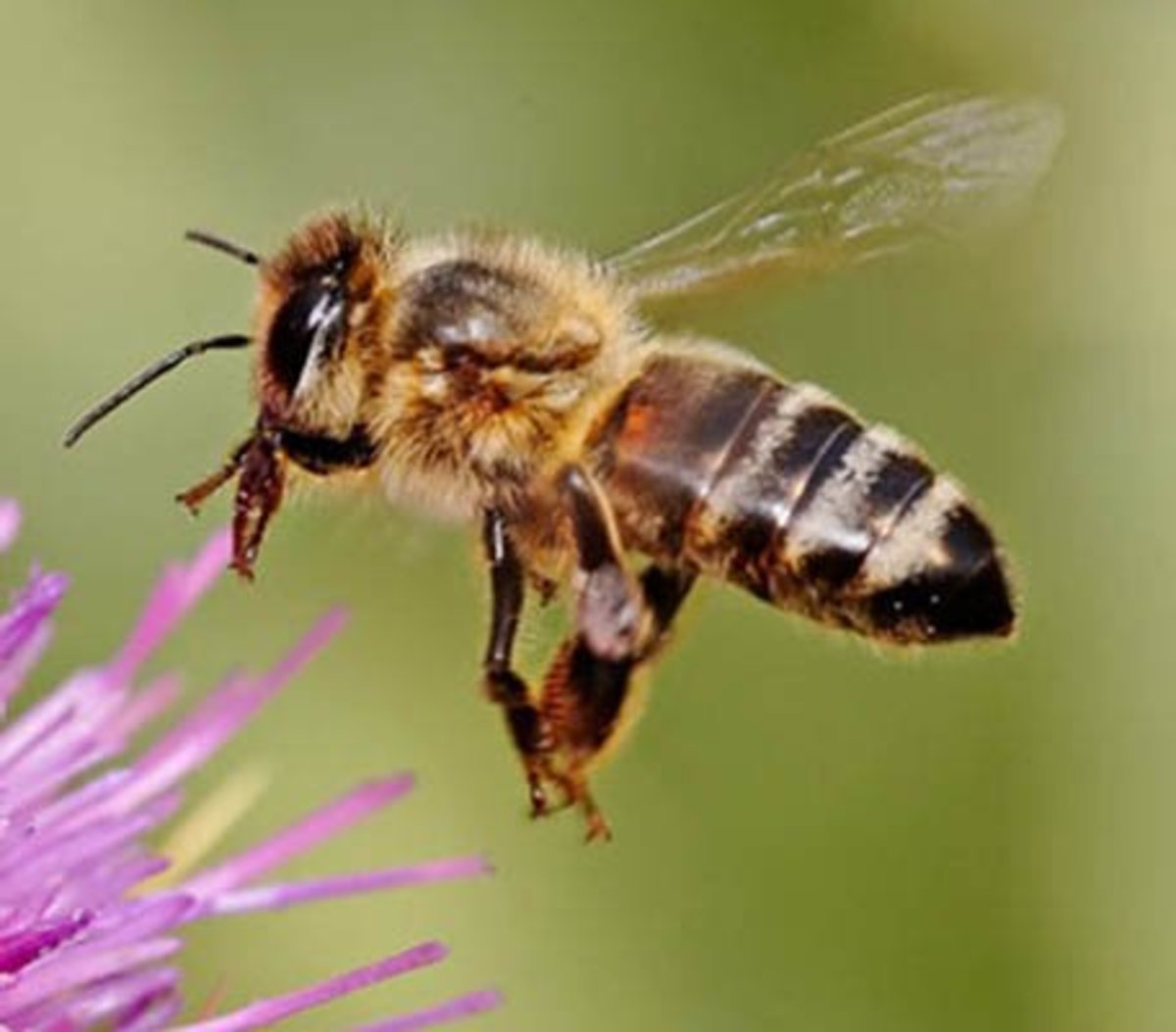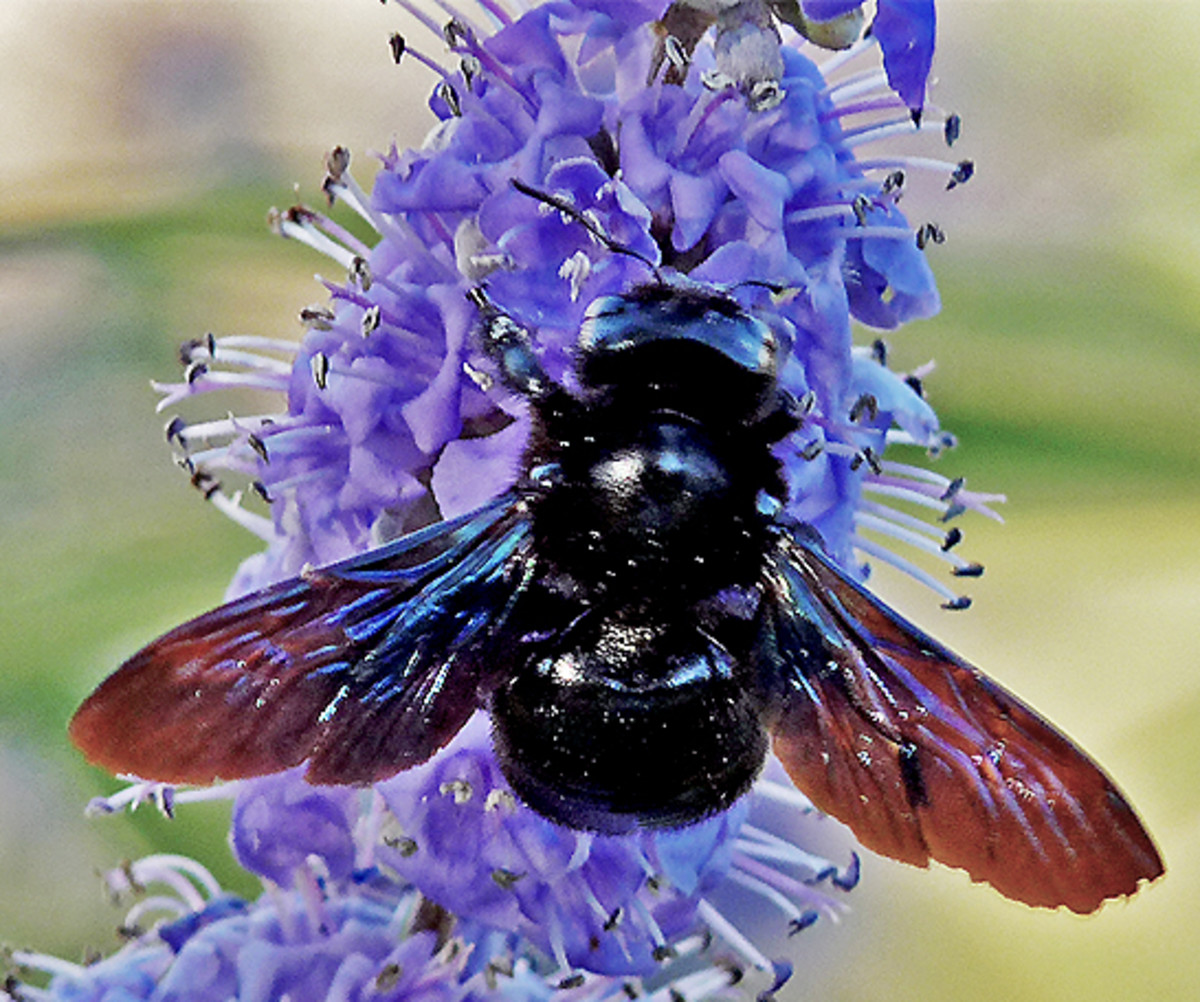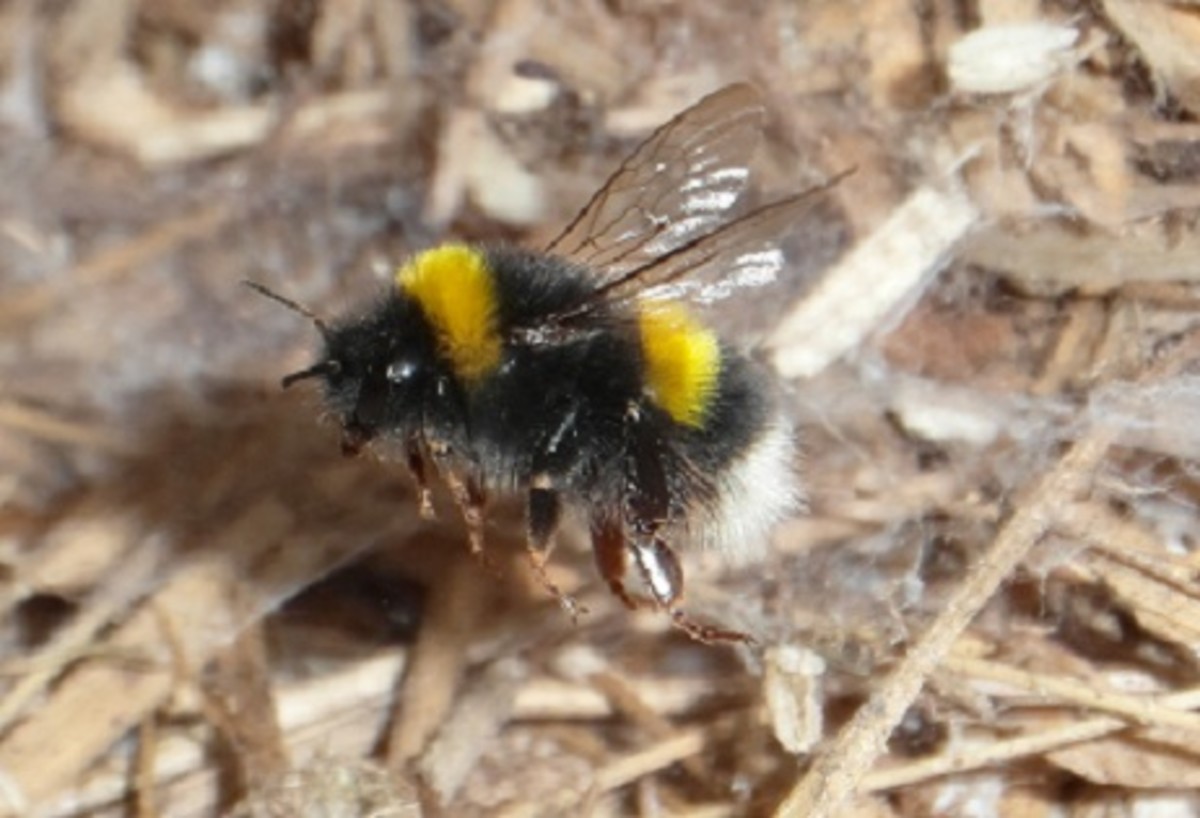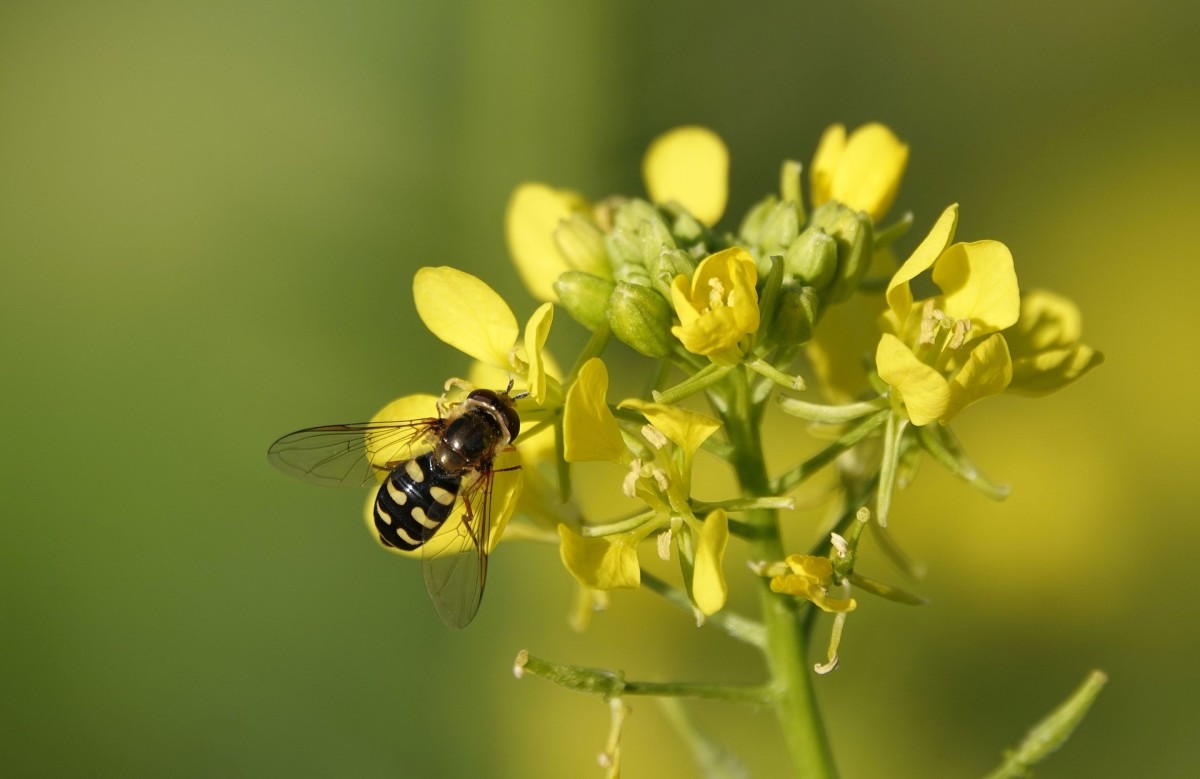Bee Pollen: Benefits and Health Effects
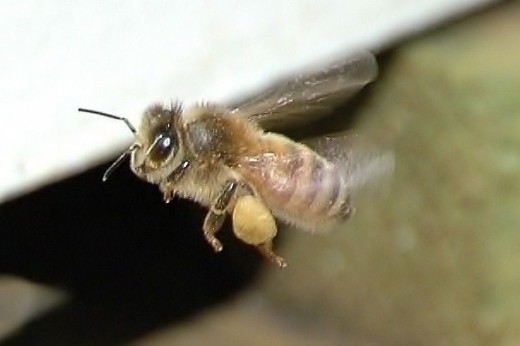
What Is Bee Pollen?
Bee pollen is simply pollen that has been collected by honey bees. Pollen itself is the male germplasm of plants and looks like a fine dust.
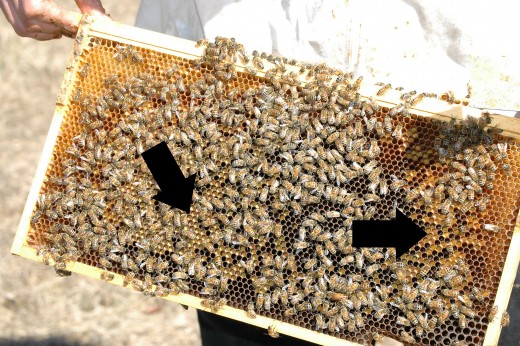
How Do Bees Use Pollen?
Pollen is a honey bee colony’s major source of protein. Bees do not eat pollen directly. First, they pack it into a cell of the wax comb that makes up the bees’ nest, add enzymes, and let it ferment. The resulting substance is called bee bread and this is what the bees eat.
How Is Bee Pollen Collected By Beekeepers?
When beekeepers collect pollen it is done with a pollen trap at the entrance to the hive. Bees carry collected pollen in small packets on their hind legs; the trap scrapes off these pollen packets as the bees enter the hive. It’s still regular pollen and not bee bread at this point.
Composition of Pollen
Component / Percent of Total
- Water 7.0 -16.2
- Crude Protein 7.0 - 29.9
- Ether Extract 0.9 - 14.4
- Reducing Sugars 18.8 - 41.2
- Nonreducing sugars 0 - 9.0
- Starch 0 - 10.6
- Lipids 4.8
- Ash 0.9 - 5.5
- Unknown 21.7 - 35.9
Source: The Beekeeper's Handbook, Third Ed. by Diana Sammataro and Alphonse Avitabile
Bee Pollen and Human Health
Perhaps no other substance receives more hype and unsubstantiated health claims than bee pollen. A quick search of the internet reveals website after website promising that bee pollen will cure whatever ailment you might have. Most of these websites offer no documentation at all. A few cite a handful of published studies that might have found some positive result. It takes scientific expertise to interpret the results of these studies, but none of them seems to have made a splash in the scientific community. The scientific consensus is that there is no evidence for the health claims made for bee pollen.1,2 Beth Israel Deaconess Medical Center, a teaching hospital of Harvard University, has a good review of the research on bee pollen here: Bee Pollen.
Bee Pollen: The Perfect Food?
There are many claims that bee pollen is a “perfect food,” that it has all one could ask for nutritionally. One would be right to ask, “Which pollen?” The chemical composition of pollen varies widely from one type of pollen to another.3 They can’t all be perfect.
Indeed, there has been growing concern among commercial beekeepers that the pollen their bees are receiving is often not sufficient to meet the bees’ nutritional needs. Commercial beekeepers are often hired to provide bees for pollination in large monocultures of commercial crops, such as almonds. Often, the commercial crop is the only source of pollen available. It’s like eating hamburger and only hamburger every day for a month. You can live off of it, but you won’t thrive.
Bee Pollen Survey
Have you ever used a bee pollen health product?
Bee Pollen and Allergies
Some people are eating bee pollen in the hope that it will cure their allergies. The idea is that ingesting small amounts of the pollen to which they are allergic will desensitize their body to that pollen. There are a few problems with this idea.
1. Most people are allergic to the pollen of wind pollinated plants, not that of insect pollinated plants, or what the bees collect.4
2. How do you know that the pollen that you are eating is the same type to which you are allergic? Is ingesting a pollen to which you are not allergic going to desensitize your system to pollen to which you are allergic?
3. If you are allergic to certain bee collected pollens, then ingesting them can cause severe reactions. Eating pollen is not without some risk.5
Where Does The Pollen that You Buy Really Come From?
I am a beekeeper, I know a lot of beekeepers big and small, and I do not know anyone who collects pollen. When I go to beekeeping conferences, there are talks and seminars on every bee related topic under the sun, but I never hear anyone talk about collecting pollen. Where does all the pollen sold in the United States come from? If internet advertisements are any indication, it’s a large market. Certainly some pollen is collected in the United States, but my guess is that a lot of it is imported, probably from China, which has a big beekeeping industry. I suspect that a lot of imported pollen is represented as being domestic.
I have accused others of making unsubstantiated claims and I am making one of my own. I can’t prove that this is happening. Maybe it doesn’t matter. There isn’t necessarily a problem with pollen from China, or any other country. I only offer this as a caution. If you are buying pollen that is being represented as domestic, or local, ask a lot of questions.
Works Cited
1. Morse, Susan. (August 7, 2007) The Evidence for Health Benefits of Many Bee Products Is Thin [Newspaper Article] Retrieved from http://www.washingtonpost.com/wp-dyn/content/article/2007/08/03/AR2007080301701.html
2. Klug, Heather. (n.d.) Bee Pollen [monograph] Retrieved from http://www.ucdenver.edu/academics/colleges/pharmacy/Resources/OnCampusPharmDStudents/ExperientialProgram/Documents/nutr_monographs/Monograph-bee_pollen.pdf
3. Sammataro, Diana and Avitabile Alphonse. (1988). The Beekeeper’s Handbook. Ithaca and London: Cornell University Press. 122.
4.Shiel, William C. Jr., Editor. (n.d.) Pollen Allergy, What Is It? [Online article] retrieved From http://www.medicinenet.com/script/main/art.asp?articlekey=20277
5. Klug.
More on Bees and Beekeeping by Wib Magli
- Local Honey and Allergies: Does Eating Local Honey H...
I Would Like This To Be True, But I am Skeptical I raise bees that produce honey, which I harvest and sell. We sell all our honey locally. The demand for local honey seems to be driven in large part by the idea that local honey helps to prevent... - Propolis Benefits
Propolis is a resinous substance that honey bees collect from plants. Bees use propolis in a variety of ways. People have harvested propolis from beehives for centuries, primarily to use medicinally. - When Bees Are Most Likely To Sting: Honeybee Colonies and Their Moods
Bees can sting, we all know that. And, let’s be honest, everybody knows that females of any species can be a bit moody. Apply this dictum to a colony of honeybees, which are nearly all female, and the occasional bee sting is inevitable. While the... - Raising Bees
Raising honey bees is a unique and fascinating pastime. This article explains how to get started in beekeeping so that you have the greatest chance of success. - Protective Clothing for Beekeepers: Beekeeping Suits...
The friendly beekeeper might have the best interest of his bees in mind, but the bees don’t seem to always see it that way. Protective clothing makes beekeeping a lot more enjoyable when the bees take exception to having the roof popped off and... - Bee Suppliers: How the Honeybee and Queen Supply Ind...
Every spring beekeepers buy thousands of queens, packages and nucs to start new colonies or to replace dead ones. An entire industry of bee suppliers, composed of producers, resellers, and breeders, has developed to meet the demand for honeybees. ...
